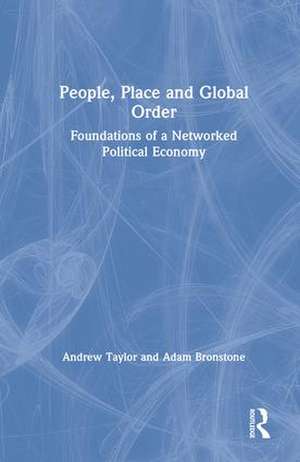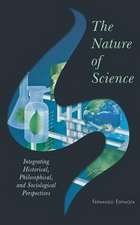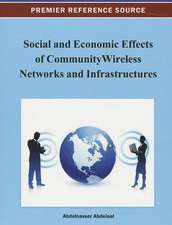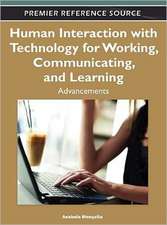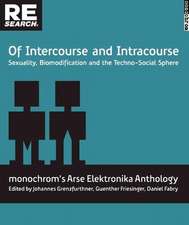People, Place and Global Order: Foundations of a Networked Political Economy
Autor Andrew Taylor, Adam Bronstoneen Limba Engleză Hardback – 29 mai 2019
Using deliberately accessible language for students and the general reader, the authors draw upon socially innovative models of economic organization from the nineteenth century to present a model to master this new economy for the common good. The book illustrates, with practical examples, how digital networks can be leveraged and provides a common checklist to identify suitable conditions for organizations to flourish and provide the means to more effectively evaluate opportunities.
Toate formatele și edițiile
| Toate formatele și edițiile | Preț | Express |
|---|---|---|
| Paperback (1) | 461.08 lei 6-8 săpt. | |
| Taylor & Francis – 17 mai 2019 | 461.08 lei 6-8 săpt. | |
| Hardback (1) | 997.42 lei 6-8 săpt. | |
| Taylor & Francis – 29 mai 2019 | 997.42 lei 6-8 săpt. |
Preț: 997.42 lei
Preț vechi: 1216.36 lei
-18% Nou
Puncte Express: 1496
Preț estimativ în valută:
190.90€ • 206.07$ • 160.07£
190.90€ • 206.07$ • 160.07£
Carte tipărită la comandă
Livrare economică 19 aprilie-03 mai
Preluare comenzi: 021 569.72.76
Specificații
ISBN-13: 9780367197636
ISBN-10: 0367197634
Pagini: 168
Ilustrații: 8
Dimensiuni: 156 x 234 x 15 mm
Greutate: 0.37 kg
Ediția:1
Editura: Taylor & Francis
Colecția Routledge
Locul publicării:Oxford, United Kingdom
ISBN-10: 0367197634
Pagini: 168
Ilustrații: 8
Dimensiuni: 156 x 234 x 15 mm
Greutate: 0.37 kg
Ediția:1
Editura: Taylor & Francis
Colecția Routledge
Locul publicării:Oxford, United Kingdom
Public țintă
Postgraduate and ProfessionalCuprins
1. Introduction 2. The Scorpions Tail: Technology and Globalization Converge 3. Setting the Stage 4. Economic and Social Change: Our Forgotten History 5. Back to the Future: Our Forgotten History 6. A Common Future. Conclusion.
Notă biografică
Andrew Taylor has run the consulting firm Connect CEE since 2000. He also established the Hull University Executive MBA in Romania in 2014 and remains Programme Director of an expanding range of executive programmes with British universities.
Adam Bronstone is director of planning for a non-profit in Nashville (TN). Adam also has relationships with several area universities and organizations, where he lectures on topics related to the state of Europe, from domestic and international perspectives, and has served as an adjunct lecturer in Britain, Canada and the United States.
Adam Bronstone is director of planning for a non-profit in Nashville (TN). Adam also has relationships with several area universities and organizations, where he lectures on topics related to the state of Europe, from domestic and international perspectives, and has served as an adjunct lecturer in Britain, Canada and the United States.
Recenzii
"This is a complex, challenging and provocative text. Yet it is highly readable. And you should read it! At root this book offers a very lucid and clear-headed explanation of why the turkeys voted for Christmas. Or more plainly the text explains in a non-judgemental fashion why places like Grimsby, Carlisle, Durham and Ipswich voted to leave the EU while London and Norwich voted to remain. Within and beyond this account of Brexit the text represents a call for a new form of business education and for a new type of political engagement. Yet perhaps more importantly the text calls for the return to a genus of capitalism which understands that markets are social arrangements which must take heed of the reciprocal obligations which facilitate exchange. And on this point it is worth drawing upon the words of the authors: ‘it is not immigrants that are the real threats[to the people of Grimsby, Durham, Carlisle and Ipswich] rather it is the elites [who mis-manage their affairs before withdrawing from public life into a genteel and generously funded retirement]."
David Collins, Dean, Suffolk Business School, UK.
"Many of us still do not understand why anti-globalization, as an idea, is gaining traction in an era that once anticipated to bear the "global village" fruits. Well this book solves the puzzle in a multi dimensional - Economical, Technological, Political, Social and Motivational - structured way. An excellent book, easy to read and follow the flow of the arguments!"
Ghaleb Al Ghoutani, Head of Organizational Development, Rawabi Holding Group.
"This book is a must buy for anyone interested in Political Science, Business & Management, and Economics. Andrew Taylor and Adam Bronstone have brought together in this volume a set of coherent arguments about why the convergence of globalization and technology is changing socio-economic relationships and leaving many people behind. They provide a detailed consideration of how technology and globalization have come together, ways in which this took place, what it means, and how this has affected both workers and consumers. In doing this, they paint a dynamic and complex picture of the Western world that led to a storm of challenges people are facing today, due primarily to well-meaning political, social and economic decisions stemming back through several decades."
Steven J Armstrong, Professor of Organizational Behaviour, University of Lincoln, UK, and Professor of Business Administration, Beijing University of Technology, China.
"As globalisation expanded we have forgotten our essence: we are social beings that need a sense of belonging and purpose Blending quantitative and qualitative analysis, the book reminds us of the importance of nourishing these, with suggested solutions, that if implemented, would nurture both growth and oikophilia."
Gabriel Juri, Managing Director Romania, Waters Corporation.
"This is a fascinating read about how politics and economics have built our modern day societies: progress, technology and globalization bringing opportunities to some and anxiety to many. Is there a new model of life, politics and economics?
The authors are quite convincing: next to technology we need social innovation. And social innovation leaders. It’s about time. Next Silicon Valley should be of social innovation.
This will reform capitalism from its core and place more virtue into our definition of success. Well, I can only say, that is the political economy to live for. "
Tiberiu Moisa, Deputy CEO Banca Transilvania.
David Collins, Dean, Suffolk Business School, UK.
"Many of us still do not understand why anti-globalization, as an idea, is gaining traction in an era that once anticipated to bear the "global village" fruits. Well this book solves the puzzle in a multi dimensional - Economical, Technological, Political, Social and Motivational - structured way. An excellent book, easy to read and follow the flow of the arguments!"
Ghaleb Al Ghoutani, Head of Organizational Development, Rawabi Holding Group.
"This book is a must buy for anyone interested in Political Science, Business & Management, and Economics. Andrew Taylor and Adam Bronstone have brought together in this volume a set of coherent arguments about why the convergence of globalization and technology is changing socio-economic relationships and leaving many people behind. They provide a detailed consideration of how technology and globalization have come together, ways in which this took place, what it means, and how this has affected both workers and consumers. In doing this, they paint a dynamic and complex picture of the Western world that led to a storm of challenges people are facing today, due primarily to well-meaning political, social and economic decisions stemming back through several decades."
Steven J Armstrong, Professor of Organizational Behaviour, University of Lincoln, UK, and Professor of Business Administration, Beijing University of Technology, China.
"As globalisation expanded we have forgotten our essence: we are social beings that need a sense of belonging and purpose Blending quantitative and qualitative analysis, the book reminds us of the importance of nourishing these, with suggested solutions, that if implemented, would nurture both growth and oikophilia."
Gabriel Juri, Managing Director Romania, Waters Corporation.
"This is a fascinating read about how politics and economics have built our modern day societies: progress, technology and globalization bringing opportunities to some and anxiety to many. Is there a new model of life, politics and economics?
The authors are quite convincing: next to technology we need social innovation. And social innovation leaders. It’s about time. Next Silicon Valley should be of social innovation.
This will reform capitalism from its core and place more virtue into our definition of success. Well, I can only say, that is the political economy to live for. "
Tiberiu Moisa, Deputy CEO Banca Transilvania.
Descriere
Using deliberately accessible language for students and the general reader, the authors draw upon socially innovative models of economic organisation from the nineteenth century to present a model to master the networked economy for the common good.
